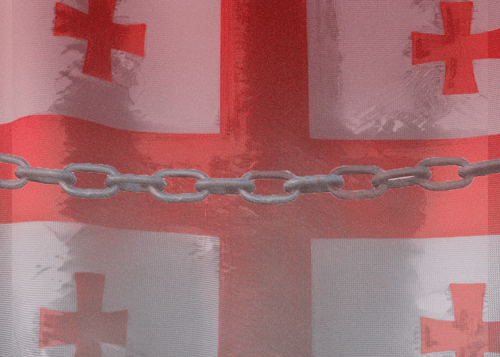
Conspiracy battles and sanctions for Georgia
Weeks-long mass protests in Georgia against the so-called ”foreign influence” law have not stopped the ruling Georgian Dream (GD) party from adopting it. Moreover, the GD was accused of last-minute amendments to the law, targeting individuals as well. Previously, the law was promised to apply only to legal entities. The ruling party representatives accused the opposition of failing to read the bill properly in the past and also diminished the importance of the addition.
The amendment of the Russian-style ”foreign influence” law allows authorities to extract sensitive personal and confidential information including racial, religious, and political affiliations from any individual. Failure to comply will result in a fine of 5000 Georgian lari (around €1700).
The Georgian Dream claimed that it aims to register non-governmental organisations and media outlets receiving 20% of its funding from abroad, not individuals, and the latter will only be addressed while investigating foreign funds. In the face of widespread accusations, President Salome Zourabichvili vetoed the controversial bill on 18 May. However, the GD is able to override the veto through a parliamentary vote and has already announced its plan to do so on 28 May. Protests have already been planned for today, 26 May – which is also Georgia's Independence Day.
Sanctions come to pass
As the Georgian Dream shows no sign of retreating from the controversial law, international pressure on the country and its ruling elite is mounting. On 23 May, the US State Department announced a visa restriction policy for Georgian individuals ”responsible for undermining democracy in Georgia.” Secretary of State Anthony Blinken also said he is launching a comprehensive review of US-Georgia cooperation, which includes a wide range of economic and military assistance.
Reportedly, the European Union is next to follow Washington’s lead by initiating targeted sanctions against Georgian officials. Earlier, the EU Ambassador to Georgia said the law is ”incompatible” with European values. Several EU countries have been advocating for discussing restrictive measures for Georgia, including the freezing of EU funding and abolishment of visa liberalisation for Georgian citizens at the upcoming EU Foreign Ministers’ summit on 27 May.
'Global war party'
The recent international pressure on the Georgian government has been met with strong resistance from the ruling elites, who fuel the public discourse with conspiracy-like theories. Prime Minister Irakli Kobakhidze reiterated Georgia’s EU aspiration and the wish to strengthen its ties with the United States while also referencing a shady ”global war party.”
The mysterious term has been used before by the Georgian Dream, including by the ex-prime minister and GD founder Bidzina Ivanishvili during a government support rally a month ago, where he suggested that the ”global war party” is trying to control Georgia through NGOs and blamed it for the 2008 war between Russia and Georgia. Earlier GD allies also claimed that the ”global war party” operated through US and European political structures and aims to drag Georgia into another conflict with Russia.
Further spicing the conspiracy narratives, the prime minister claimed he was intimidated by an EU commissioner during a phone call, hinting that Kobakhidze could share the fate of his Slovak counterpart Robert Fico, who was shot by a civilian on 15 May. The EU official in question turned out to be Olivér Várhelyi, a Neighborhood and Enlargement Commissioner, appointed personally by GD’s long-time supporter, the Hungarian Prime Minister Viktor Orbán.
Várhelyi later announced that his remark was taken out of context and misinterpreted, while his original intent was to warn Kobakhidze against increased societal polarisation.